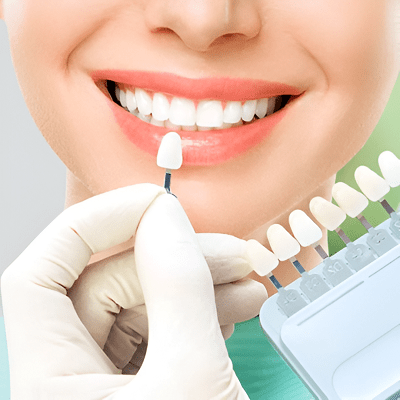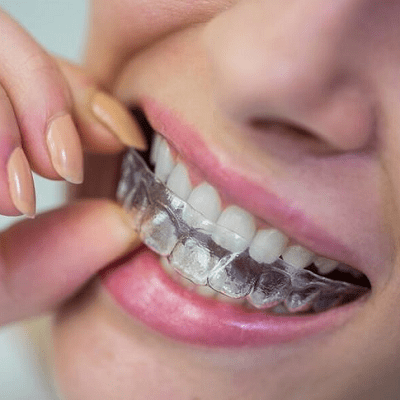
Many patients ask this important question after their dentist recommends root canal treatment. The answer is not always straightforward but in most cases, a crown is recommended. Let me explain when you need a crown and when you might not.
Root canal treatment removes infected or damaged nerve tissue from inside your tooth. However, this procedure also removes the blood supply to the tooth. The tooth becomes weaker and more brittle over time. Therefore, most root canal-treated teeth need protection with a dental crown.
When do you need a crown after a root canal?
Back teeth:
Back teeth, like molars and premolars, almost always require crowns after a root canal. These teeth endure heavy chewing pressure every day. Without a crown, a molar that’s had a root canal can crack or break within months, which is why dentists strongly advise crowning all back teeth after the procedure.
Extreme damage:
Teeth with large cavities or multiple old fillings typically need a crown. Cracked or fractured teeth also benefit from crown protection. A crown helps hold the remaining tooth structure together, preventing further damage.
Teeth with Significant Filling Material
Sometimes the filling used to seal the root canal takes up most of the tooth. Therefore, very little natural tooth structure remains, and this makes the tooth extremely fragile and prone to fracture. Thus, a crown becomes necessary to protect the weakened tooth structure.
Why is a crown necessary, and how does it protect root-canal-treated teeth?
Root canal treatment affects the tooth’s structure and strength. First, removing the nerve eliminates the internal blood supply and nutrients, and the tooth becomes more brittle like dried wood. Also, the access hole created for the root canal weakens the tooth structure. Therefore, the tooth becomes vulnerable to fractures during normal chewing.
Additionally, teeth often need a root canal because of extensive decay. Cleaning and shaping the root canals removes more internal tooth structure. Thus, the remaining tooth needs external support and protection.
A crown covers the entire visible portion of the tooth above the gum line and distributes chewing forces evenly across the tooth. It also prevents cracks from spreading through the tooth. Therefore, crowned teeth last much longer than uncrowned root canal-treated teeth.
What Happens Without a Crown?
Skipping a crown after a root canal can lead to serious problems. The tooth may crack or fracture during normal chewing, sometimes within months. Cracks can extend below the gum line, making the tooth difficult to save. Bacteria can also enter through these cracks, causing reinfection. In some cases, the tooth may break completely, requiring extraction. This means you lose the tooth despite investing in the root canal, and may need a costly implant or bridge to replace it.
Studies show that teeth treated with a root canal but left uncrowned have a much higher failure rate. Back teeth without crowns survive only 50–60% of the time after five years, while crowned teeth survive 90–95% of the time. A crown, therefore, greatly improves the tooth’s long-term survival.
Our crown placement process at Dental Clinic Islamabad
Crown Placement Process at Dental Clinic Islamabad:
After completing your root canal, the dentist usually waits 1–2 weeks before preparing the tooth for a crown.
During the crown appointment, the area is numbed with local anesthesia, and the tooth is shaped to fit the crown.
Impressions of the tooth are taken and sent to a dental laboratory.
A temporary crown is placed to protect the tooth for 1–2 weeks.
Once the permanent crown is ready, the temporary crown is removed, the fit and appearance of the permanent crown are checked, and it is cemented in place.
The process typically requires two appointments over 2–3 weeks.
Cost of a Dental crown at Dental Clinic Islamabad
Dental crowns in Islamabad cost between PKR 20,000 to PKR 30,000, depending on clinic location, and material type. However, this investment saves your natural tooth from extraction. Root canal with crown is actually more cost-effective than extraction and replacement.
Why choose Dental Clinic Islamabad?
Root canal and crown treatment require expertise and precision. So why not visit Dental Clinic Islamabad now and save your tooth with safe and effective procedures.
- Dr. Usama Hayat has years of experience in root canal and crown procedures
- We use modern equipment, including digital X-rays and rotary endodontic systems
- Advanced anesthesia techniques ensure comfortable, pain-free procedures
- We use premium crown materials for natural appearance and durability
- Competitive costs.
- Complete treatment from diagnosis through final crown placement
- We maintain strict sterilization and hygiene protocols
- We explain all options clearly, helping you make informed decisions
- Regular monitoring ensures long-term treatment success.
FAQS
How long can I wait to get a crown after a root canal?
Ideally, a crown should be placed within 2–4 weeks after completing a root canal. Some patients may delay up to 6 months, but the longer you wait, the greater the risk of the tooth fracturing.
Is root canal treatment painful?
No, root canal treatment is not painful. Moreover, dentists use local anesthesia to completely numb the area. Additionally, modern techniques and equipment make the procedure comfortable.
Can I get a crown immediately after a root canal?
Dentists usually wait 1–2 weeks after a root canal before starting crown preparation. This allows the tooth to settle and helps prevent complications.
Which crown material is best after a root canal?
The best crown material depends on the tooth’s location and your budget. For back teeth, zirconia or porcelain-fused-to-metal (PFM) crowns are highly durable. For front teeth, all-ceramic or zirconia crowns offer the best aesthetics.
How long do crowns last after a root canal?
High-quality crowns typically last 10-15 years or longer with proper care. Moreover, some crowns last 20+ years. Additionally, crown longevity depends on material quality, dental hygiene, and chewing habits.
Can root canal-treated teeth without crowns be saved if they crack?
In some cases, cracked root canal-treated teeth can be saved if detected early. The outcome depends on the location and severity of the crack. Cracks that extend below the gum line usually require extraction, which is why placing a crown beforehand is the best way to prevent damage.



